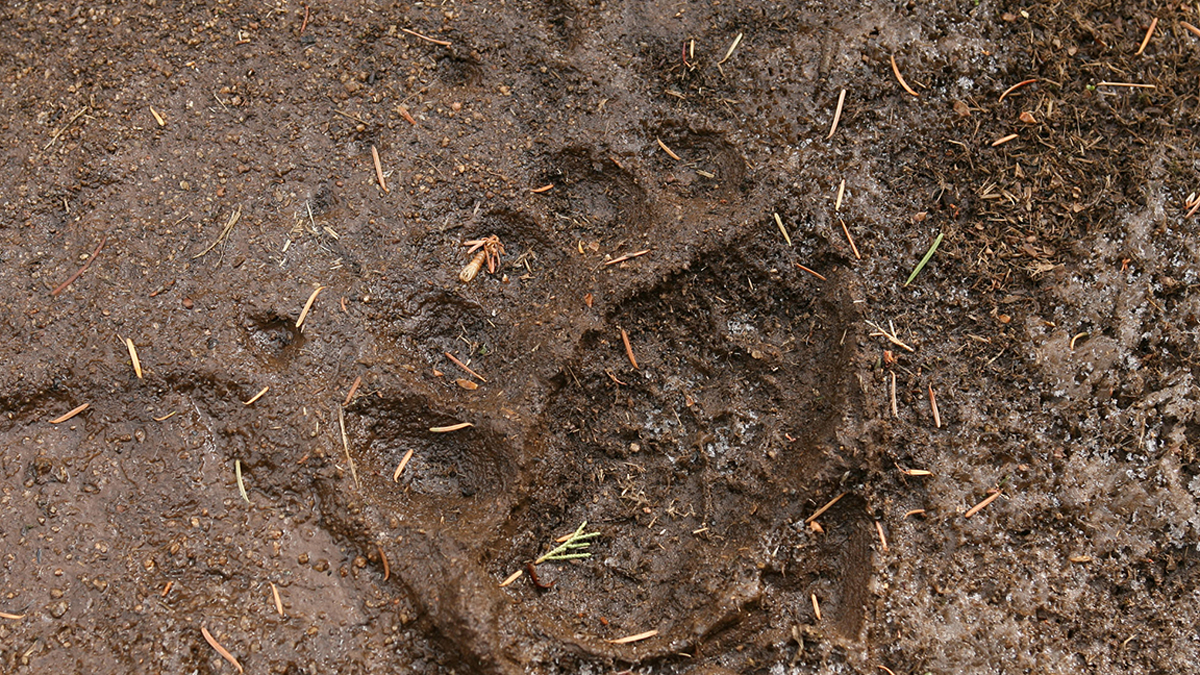Below is a news release from Montana Fish, Wildlife and Parks.
A hunter killed a grizzly bear in self-defense last week in the Madison Range southeast of Ennis.
The person was hunting black bears in a remote parcel of private land in the backcountry on June 5 when he was charged by a grizzly bear. The hunter shot and killed the bear with a pistol and was not injured.
The hunter notified Montana Fish, Wildlife & Parks the same day. Officials from FWP, the U.S. Fish & Wildlife Service, and the Beaverhead-Deerlodge National Forest conducted a field investigation with help from the landowner and confirmed the bear mortality. The investigation is ongoing.
The bear’s behavior appeared to be defensive in the surprise, close encounter with the hunter. The 15-year-old female grizzly had previously been captured for research purposes in 2013 and had no known history of conflict with people. No cubs were seen with the bear. The bear died outside the Greater Yellowstone Ecosystem grizzly bear recovery zone, and inside the demographic monitoring area.
Be bear aware
Montana is bear country. Grizzly bear populations continue to become denser and more widespread in Montana, increasing the likelihood that residents and recreationists will encounter them in more places each year.
Avoiding conflicts with bears is easier than dealing with conflicts. Here are some precautions to help residents, recreationists and people who work outdoors avoid negative bear encounters:
- Carry bear spray and be prepared to use it immediately.
- Travel in groups whenever possible and make casual noise, which can help alert bears to your presence.
- Stay away from animal carcasses, which often attract bears.
- Follow food storage orders from the applicable land management agency.
- If you encounter a bear, never approach it. Leave the area when it is safe to do so.
- Keep garbage, bird feeders, pet food and other attractants put away in a secure building. Keep garbage in a secure building until the day it is collected. Certified bear-resistant garbage containers are available in many areas.
- Never feed wildlife. Bears that become food conditioned lose their natural foraging behavior and pose threats to human safety. It is illegal to feed bears in Montana.
Hunting in places that have or may have grizzly bears—which includes areas of Montana west of Billings—requires special precautions:
- Carry bear spray and be prepared to use it immediately.
- Look for bear sign and be cautious around creeks and areas with limited visibility.
- Hunt with a group of people. Making localized noise can alert bears to your presence.
- Be aware that elk calls and cover scents can attract bears.
- Bring the equipment and people needed to help field dress game and remove the meat from the kill site as soon as possible.
- If you need to leave part of the meat in the field during processing, hang it at least 10 feet off the ground and at least 150 yards from the gut pile. Leave it where it can be observed from a distance of at least 200 yards.
- Upon your return, observe the meat with binoculars. If it has been disturbed or if a bear is in the area, leave and call FWP.
Grizzly bears in the lower 48 states are listed as threatened under the Endangered Species Act. Management authority for grizzlies rests with the U.S. Fish & Wildlife Service, working closely in Montana with FWP, the Forest Service, the National Park Service, the Bureau of Land Management, the U.S. Geological Survey, Wildlife Services, and Native American tribes. This collaboration happens through the Interagency Grizzly Bear Committee.
(Photo credit: Montana Fish, Wildlife and Parks)
